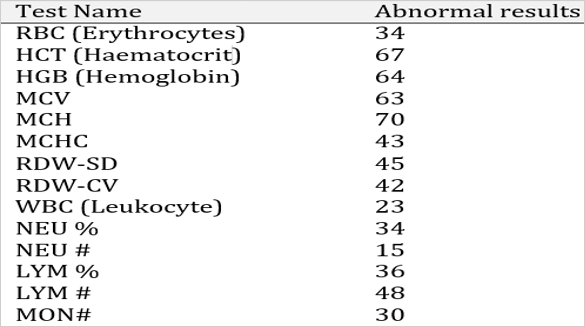Abstract
Celiac Disease is a common systemic disorder including immunologic, genetic, and environmental factors. To describe the different haematological finding of Celiac Disease in Karbala city. This is a cross-sectional study conducted in the Children Teaching Hospital in Karbala city comprising data sheets of complete blood count (CBC) for 119 children, 70 males and 59 females (with the average age of 7). Tissue transglutaminase antibody (IgA and IgG) are performed for all patients after recording their history and clinical examination. CBC results are divided into three categories as 1) red blood cells (RBC) showing iron deficiency or anaemia, 2) white blood cells (WBC) showing the status of disease if it's in the acute or chronic state serological obtained from tissue transglutaminase antibody (IgA and IgG) and 3) clinical examination providing a new scientific explanation for the samples bordered to detect IgA and IgG. Celiac Disease is associated with a diversity of haematological findings especially Iron deficiency anaemia characterised by no response to iron supplement, leukopenia, lymphopenia, neutropenia, and eosinophilia, as well as thrombocytopenia and thrombocytosis. Due to the interaction between the clinical signs of food intolerance against gluten and celiac disease, few other studies have been suggested.
Full text article
Authors

This work is licensed under a Creative Commons Attribution-NonCommercial-NoDerivatives 4.0 International License.

